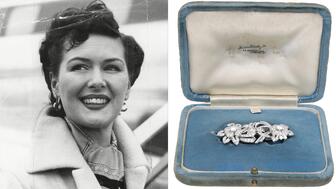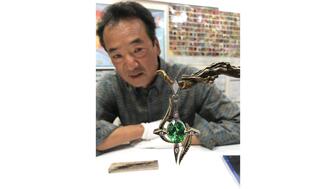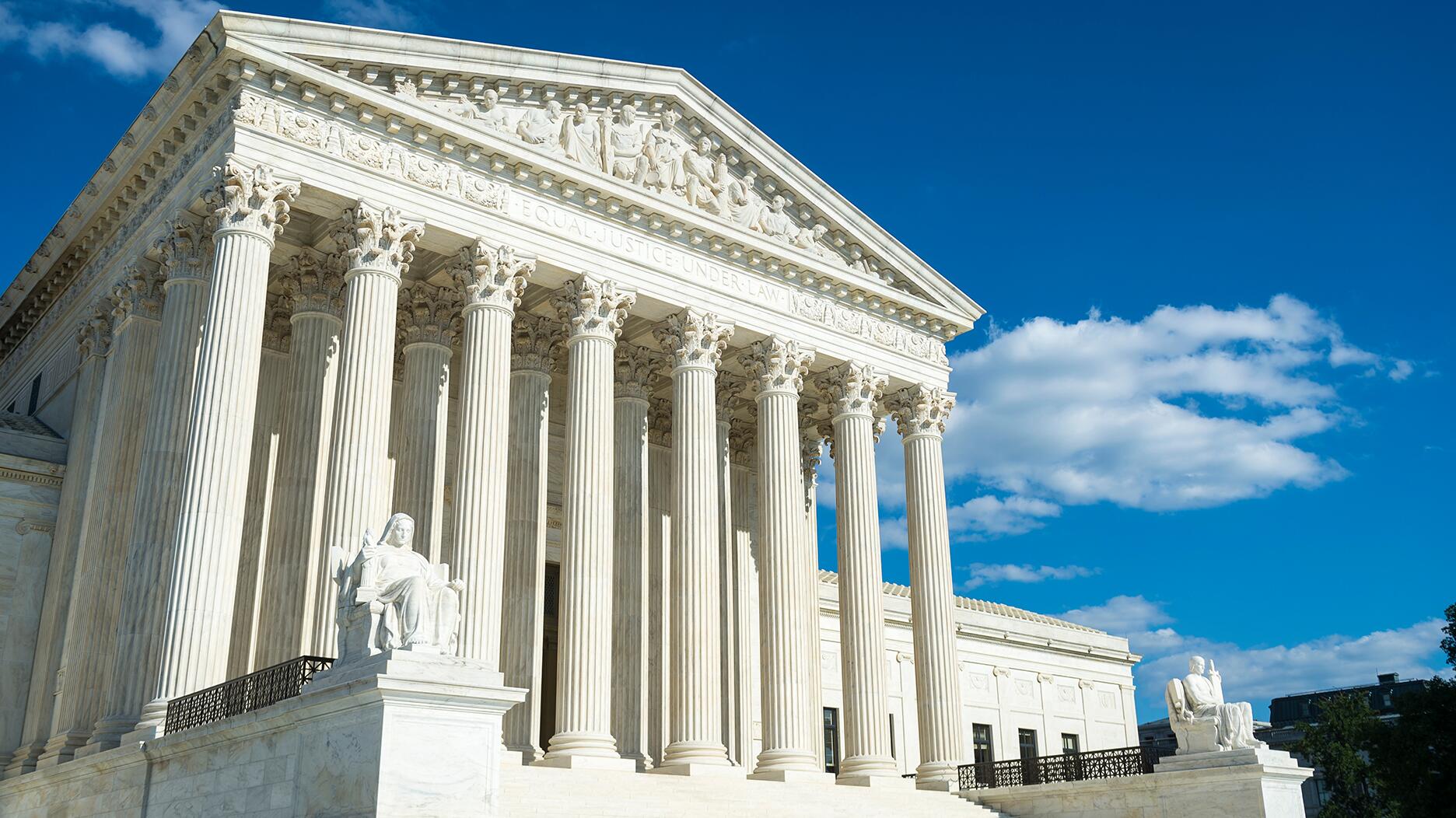Chicago police and members of the U.S. Marshals Service tracked down the 35-year-old suspect earlier this week in St. Louis.
SCOTUS: States Can Make Online Sellers Collect Sales Tax
The Supreme Court voted to overturn Quill, which makes way for states to begin collecting sales tax from online merchants.

Washington--The U.S. Supreme Court has made way for states to begin collecting sales tax from all online sellers by overturning a decision made when only 2 percent of Americans had internet access and mail-order catalogs were king.
Quill Corp. v. North Dakota (1992), which barred states from collecting sales tax from sellers that do not have a physical presence in the state, was overturned by a vote of 5-4, the court announced Thursday morning.
Justice Anthony M. Kennedy authored the concurring opinion, joined by Justices Ruth Bader Ginsberg, Samuel A. Alito Jr., Neil M. Gorsuch and Clarence Thomas.
“Quill puts both local businesses and many interstate businesses with physical presence at a competitive disadvantage relative to remote sellers,” he wrote. “Remote sellers can avoid the regulatory burdens of tax collection and can offer de facto lower prices caused by the widespread failure of consumers to pay the tax on their own.”
(When consumers buy an item online and do not pay sales tax at the time of the purchase they are required by law to report and pay it when they do their annual income taxes, though hardly any do so.)
“In effect,” the concurring opinion continues, “Quill has come to serve as a judicially created tax shelter for businesses that decide to limit their physical presence and still sell their goods and services to a state’s consumers—something that has become easier and more prevalent as technology has advanced.”
Chief Justice John Roberts and Justices Stephen Breyer, Sonia Sotomayor and Elena Kagan dissented, with Roberts stating that while e-commerce has grown into a “significant and vibrant” sector of the economy, the changing of the physical presence rule ultimately should be left up to Congress.
He noted the costs this decision will impose on retailers of all sizes, as they grapple with how to navigate the web of complex tax laws that vary from jurisdiction to jurisdiction.
“The burden will fall disproportionately on small businesses,” Roberts wrote in the dissenting opinion. “One vitalizing effect of the internet has been connecting small, even ‘micro,’ businesses to potential buyers across the nation. People starting a business selling their embroidered pillowcases or carved decoys can offer their wares throughout the country—but probably not if they have to figure out the tax due on every sale.”
The Supreme Court decision to overturn Quill is seen as a victory by many brick-and-mortar sellers
On Thursday, both Jewelers of America and the National Retail Federation issued statements lauding the Supreme Court’s decision, though both noted the need for congressional action to follow.
“This historic decision from the Court in support of sales tax fairness is a major victory for the jewelry industry, providing a clear path to level the playing field between traditional and online retailers,” JA President and CEO David J. Bonaparte said. “Now, Congress must respond by passing federal legislation to create a universal federal framework for sales and use tax collection in a way that benefits businesses, regardless of the state where their business resides, and avoids a patchwork of state-by-state laws.”
NRF CEO Matthew Shay called the decision a “major victory” but said Congress must now follow the court’s lead and pass legislation implementing uniform, national rules that “provide consistency and clarity for retailers across the country.”
JA, which just held its annual fly-in in which it brings jewelers to meet with Congressional leaders, said it will continue to push Congress to pass federal legislation for sales tax collection.
The chance to revisit and overturn Quill came to the Supreme Court earlier this year after the state of South Dakota, which estimates that it loses $48-$58 million a year due to uncollected taxes from online sales, asked the court to reconsider the two decades-old decision.
Overstock.com, one of the online retailers that battled South Dakota over the issue, issued a statement following Thursday’s ruling indicating it would comply but called on Congress to step in and legislate a “fair solution.”
“Today the U.S. Supreme Court has re-shaped the interstate commerce landscape in a move that could impact small business innovation on the internet, which has been a driving force behind our nation’s economy for the last 15 years,” said Jonathan Johnson, an Overstock.com executive and board member.
“The framers of the Constitution intended Congress to regulate interstate commerce by thoughtful legislation. To lessen the potential impact of today’s ruling on internet innovation, Congress can, and should, pass sound legislation allowing states to accomplish their aims while still permitting small internet business to thrive.”
The full opinion can be found on SupremeCourt.gov.
Editor’s note: The story was updated post-publication to include a statement from Overstock.com, which was received after the story was published.
The Latest

Owners of the Ekapa Mine reportedly filed for liquidation about a week after a mudslide trapped five workers who have yet to be found.

A 10-year alliance has also begun to address the shortage of bench jewelers through scholarships, enhanced programs, and updated equipment.

Every jeweler faces the same challenge: helping customers protect what they love. Here’s the solution designed for today’s jewelry business.

The “Splendente” collection has evolved to feature hardstone letter pendants, including our Piece of the Week, the onyx “R.”


The jewelry collection belonged to “one of society's most glamorous and beautiful women of the mid-20th century,” said the auction house.

The update came as Anglo took its third write-down on the diamond miner and marketer, which lost more than $500 million in 2025.

With refreshed branding, a new website, updated courses, and a pathway for growth, DCA is dedicated to supporting retail staff development.

Emmanuel Raheb discusses the rise of “GEO” and the importance of having well-written, quality content on your website.

Each received around four years for burglarizing a jewelry store and a coffee shop in Simi Valley, California, last May.

Catherine Aulick, a GIA graduate, received the ninth and final Gianmaria Buccellati Foundation Award for Excellence in Jewelry Design.

We asked a jewelry historian, designer, bridal director, and wedding expert what’s trending in engagement rings. Here’s what they said.

Experts from India weigh in the politics, policies, and market dynamics for diamantaires to monitor in 2026 and beyond.

Beth Gerstein discusses the vibe of the new store, what customers want when fine jewelry shopping today, and the details of “Date Night.”

Are arm bands poised to make a comeback? Has red-carpet jewelry become boring? Find out on the second episode of the “My Next Question” podcast.

The Swiss watchmaker is battling declining sales amid a rapid retail expansion, according to a Financial Times report.

The campaign celebrates Giustina Pavanello Rahaminov, the co-founder’s wife and matriarch of the family-owned brand, for her 88th birthday.

Rachel Bennett, a senior jeweler who has been with Borsheims since 2004, earned the award.

The industry veteran, who was with The Edge Retail Academy for 14 years, joins her husband at the company he founded in 2022.

The vintage signed jewelry retailer chose Miami due to growing client demand in the city and the greater Latin American region.

Former Flight Club executive Jin Lee will bring his experience from the sneaker world to the pre-owned watch marketplace.

Sakamoto, who died in mid-January following a sudden illness, is remembered for his humility and his masterful, architectural designs.

The April event will feature a new VIP shopping day requiring a special ticket.

Bulgari chose the British-Albanian singer-songwriter for her powerful and enduring voice in contemporary culture, the jeweler said.

Smith encourages salespeople to ask customers questions that elicit the release of oxytocin, the brain’s “feel-good” chemical.

JVC also announced the election of five new board members.

The brooch, our Piece of the Week, shows the chromatic spectrum through a holographic coating on rock crystal.




























